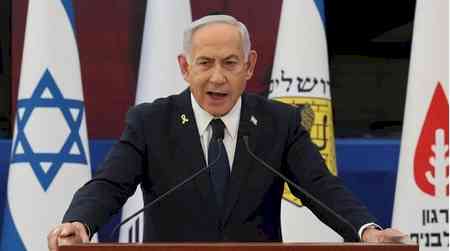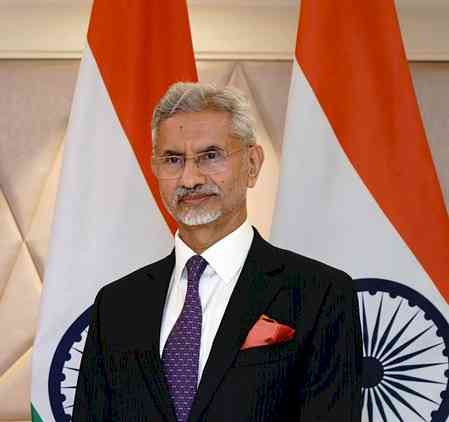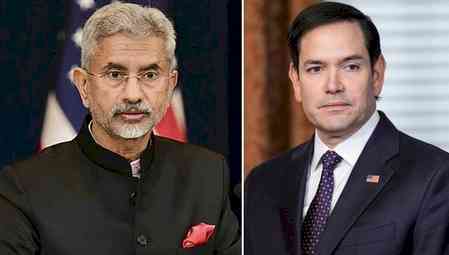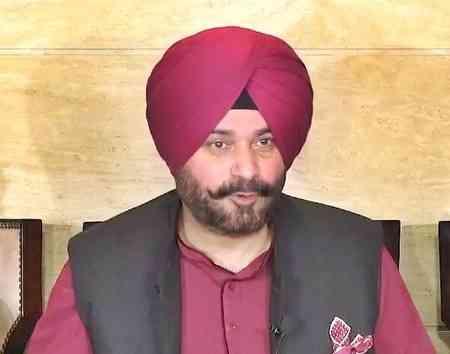India calls for 'mutual restraint' around embattled Ukrainian nuke plant
Amid widespread warnings of a potential "catastrophe" at Europe's largest nuclear power plant trapped in the middle of the Ukraine war, India has called on both Moscow and Kiev to show "mutual restraint".

By Arul Louis
United Nations, Sep 7 (IANS) Amid widespread warnings of a potential "catastrophe" at Europe's largest nuclear power plant trapped in the middle of the Ukraine war, India has called on both Moscow and Kiev to show "mutual restraint".
"With a view to not endangering the safety and security of nuclear facilities and personnel working there, we reiterate our call for strict mutual restraint," India's Permanent Representative Ruchira Kamboj said on Tuesday at a Security Council meeting on the dangers to the Zaporizhzhia plant.
"India attaches high importance to ensuring the safety and security of nuclear facilities in Ukraine, as any accident involving nuclear facilities could potentially have severe consequences for public health and the environment".
Secretary-General Antonio Guterres called for demilitarising the area around the facility, warning that "any damage, whether intentional or not, to Europe's largest nuclear power plant in Zaporizhzhia, or to any other nuclear facility in Ukraine, could spell catastrophe, not only for the immediate vicinity, but for the region and beyond".
Althoughtthe Zaporizhzhia nuclear plant is under Russian occupation, it continued to be operated by Ukrainians.
The area around the facility has seen shelling and besides the risk of a direct hit, it also faces the danger of losing its ability to cool its reactors and spent fuel should it lose power internally and from the Ukraine grid leading to a meltdown.
Russia and Ukraine continue to trade charges on who is responsible for endangering the plant.
International Atomic Energy Agency (IAEA) Director-General Rafael Mariano Grossi, who visited the plant last week, said: "We are playing with fire... Something very, very catastrophic could take place."
The IAEA issued a report on Tuesday that also called for the "immediate establishment of a nuclear safety and security protection zone" around the plant.
Guterres proposed a two-step plan to protect the plant starting with the two sides making a commitment to not engage in military activity from the plant or toward it.
Next, he said, there should be an agreement to set up a "demilitarised perimeter".
"Specifically, that would include a commitment by Russian forces to withdraw all military personnel and equipment from that perimeter and a commitment by Ukrainian forces not to move into it," he said.
While Russia's Permanent Representative Vasily Nebenzia accused Kiev of shelling around the plant, Ukraine's Permanent Representative Sergiy Kyslytsya said that armed provocations from the plant continued and the only way to avoid the nuclear threat is for Moscow to withdraw from there and return the plant to Ukraine.
Later speaking to reporters, Nebenzia sounded sceptical about the demilitarisation proposal saying it was not serious.
He denied that the plant under Russian control was militarised and said that his country was only trying to protect it.
Russian forces occupied another nuclear facility, the decommissioned Chernobyl plant, in February but withdrew the next month.
The Chernobyl facility witnessed the world's worst nuclear accident in 1986, resulting in radiation leaks that killed 31 people but continues to affect thousands.
A 20-mile radius exclusion zone was created around the decommissioned plant and structures erected to contain the radiation, which needs to be continuously monitored.
(Arul Louis can be contacted at aru.l@ians.in and followed at @arulouis)


 IANS
IANS 









